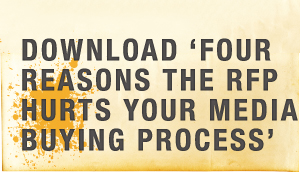In an effort to entice advertisers to their publications and fill their pages, Meredith Corporation is extending their Sales Guarantee program, to help manage advertising budgets. The program began in July 2011 and was limited to certain categories of advertisers and carried frequency and budget stipulations. In return, Meredith guaranteed to deliver a return on the advertisers’ investment in their publishing properties.
Budgets now more than ever are being segmented and fragmented into a variety of media.  This isn’t news, you know this and have heard about it for some time. With dollars flying around faster than your local casino’s cash tornado, media outlets are scrambling for ways to ensure those dollars still fall in their pockets. This is Meredith’s attempt to keep their advertising dollars, and according to the report it’s working, at least for the advertisers.
This isn’t news, you know this and have heard about it for some time. With dollars flying around faster than your local casino’s cash tornado, media outlets are scrambling for ways to ensure those dollars still fall in their pockets. This is Meredith’s attempt to keep their advertising dollars, and according to the report it’s working, at least for the advertisers.
The thing is, it needs to work for the publication, too. Meredith is reporting participants are seeing a $7.81 return on each dollar spent in the campaign. What they’re not reporting, is how many free ads they have to provide advertisers to get them that level of return. The model needs to be sustainable for both advertisers and the publication, or it’s completely one-sided. If Meredith is providing free frequency in order to get the return advertisers need, they could be giving up valuable publication space they could be selling to other advertisers.
Ad pages have been declining, so this could be a moot argument. Frequency works, but sometimes advertising costs are prohibitive when it comes to purchasing the frequency required to see the return. By guaranteeing returns and giving advertisers the frequency they need to get the returns, the risk is reduced for advertisers. In the long run, however, Meredith may be shooting themselves in the foot. The return on advertising costs is one thing, but the timeframe to get that return is another.
As advertisers continue to look to put big data to work, and as marketers get better at analyzing and understanding what’s happening with their different campaigns, the ‘what have you done for me lately,’ mentality will continue to run rampant. This might be Meredith’s current response to that argument, but I don’t think it can last. Advertisers who know magazines work, and Meredith’s titles work for their products or services will, and should, continue to use them. And this might entice some categories or advertisers to give Meredith a shot. But in the long run, if the results aren’t there (in the timeframe the advertiser desires, not just ‘at some later date’), advertisers will move to a channel they can measure and test according to their schedule.
The Harvard Business Review recently published a story about how some traditional marketers are having a hard time with digital. That’s somewhat attributed to their lack of understanding, and in the end, fear of the medium. But that can’t last. As the story states, as today’s associates turn into tomorrow’s CMOs, they’ll bring with them experiences in multiple media and the ability to test and measure each different vehicle. And that day is closer than we might think, if it’s not already upon us.
 In order for this guarantee to be sustainable and make money for the publication long-term, Meredith needs to understand how to deliver integrated campaigns to its advertisers, not just free print frequency in the hopes of keeping them in Better Homes and Gardens and Country Life.
In order for this guarantee to be sustainable and make money for the publication long-term, Meredith needs to understand how to deliver integrated campaigns to its advertisers, not just free print frequency in the hopes of keeping them in Better Homes and Gardens and Country Life.
If you’re interested in learning how to take advantage of integrated campaigns, check out our eBook titled the CMO’s Guide to Integrating Print and Digital Media. And before you pull the trigger on your next campaign, be sure to understand why the RFP process hurts your media buying process by reading our eBook on the subject. The one-voice method has proven much more effective.
Scott Olson is the director of marketing at Mediaspace Solutions. His career has spanned marketing positions in the non-profit, software and utility sectors providing various marketing experiences. You can connect with Scott on Facebook, Google+, Twitter or LinkedIn.




